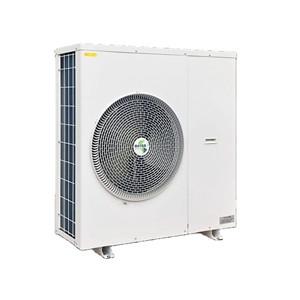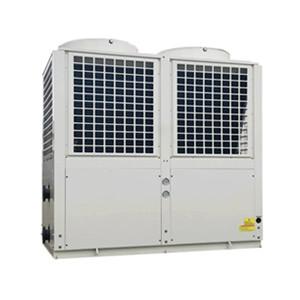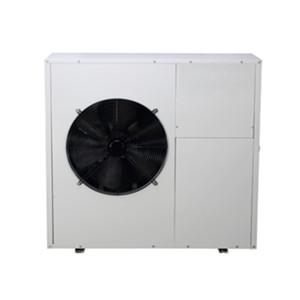Pros and Cons of Air Source Heat Pumps
If you've been looking for ways to upgrade your HVAC system, you may have stumbled upon air source heat pumps. While these alternatives to traditional heating and cooling are well-received for a variety of reasons, they may or may not be right for you.
We’re finding that heat pumps are becoming a common requirement, and largely for good reason. Every HVAC system has its pros and cons, but air source heat pumps are often considered advantageous because of their numerous advantages. But we’re here to analyze how the pros and cons of heat pumps balance out.
Before we dive into the pros and cons of heat pumps, it’s important to note that we’re specifically discussing air source models.
Air source heat pumps rely on electricity and do not use natural gas or oil to generate heat. There are other types of heat pumps such as ground source and water source, but air source heat pumps are more popular and convenient in residential areas of Los Angeles.
Before we delve deeper, let’s take a look at the pros and cons of air source heat pumps.

Advantages of heat pumps include:
* Efficient
* 2-in-1 design
* Eliminates the danger of burning and heating
* Easy multi-zone configuration
At the same time, the disadvantages of heat pumps are:
*Installation cost
* Higher electricity bills
* Requires more maintenance
* Poor performance in bad weather
We'll run through the pros and cons of each to help better understand whether a heat pump is right for you.
Advantages of air source heat pumps
1. Efficient
Energy bills are a top concern for all HVAC owners. With electricity prices rising 14% in 10 years, heat pumps offer a more efficient option than traditional heating and cooling.
Because heat pumps transfer heat rather than generate it, less energy is required during the heating process. This design uses approximately 50% less energy to heat a home than standard electric heating systems.
But performance efficiency isn't the only way heat pumps offer more efficient options.
2. Two-in-one design
While there are some larger heat pump designs, there are also many smaller heat pump designs that save space and are less of an eyesore. You can also count on not having to leave less overall space, since the heat pump houses both heating and cooling elements.
For families strapped for real estate, a heat pump can come in handy. But besides saving space, heat pumps have another benefit over traditional heating units.
3. Eliminate the danger of combustion and heating
Protecting your family is a top priority, and while many homeowners often don't consider traditional gas or oil furnaces to be dangerous, the risks are inherent. Running a gas or oil furnace comes with some pitfalls.
First, there is a risk of carbon monoxide poisoning from faulty equipment. According to the Centers for Disease Control (CDC), carbon monoxide poisoning kills hundreds of people every year and sickens thousands more.
Air source heat pumps can also reduce the risk of fire or explosion, adding another layer of protection to your home.
In addition to protecting your family, heat pumps can provide additional comfort due to specific design features not found in traditional air conditioners and heaters.
4. Easy multi-region configuration
With a heat pump, you have the option of running a ductless system. Since it is a multi-zone system, choosing a ductless system gives you the freedom to heat and cool each room as needed.
While you can implement a multi-zone system using traditional components, the process may require adding additional units and multiple thermostats.
Heat pumps make things easier because individual air handlers are placed in each room of your home. Each indoor air handler is controllable to ensure ideal comfort for your family.
If you have indoor space, a ductless system is a win-win for everyone in the home.
But it’s not all sunshine and rainbows when installing a heat pump. There are many disadvantages to consider when shopping around.
Disadvantages of air source heat pumps
1. Installation costs
One of the biggest drawbacks of a heat pump is its installation cost. Heat pumps are on average 5% more expensive than traditional air conditioners. Installation costs are also higher.
The main reason for the price difference between traditional air conditioners and heat pumps is that heat pumps can both heat and cool. Heat pumps serve dual functions, and their prices reflect this.
It’s best to keep this in mind when purchasing a heat pump to lower your future expectations.
2. Higher electricity bills
Since air source heat pumps are electric, your electricity bills will increase significantly. Rather than running a gas furnace with a separate option, air source heat pumps rely on electricity, which means electricity bills are consistently higher.
On the plus side, you don’t have to worry about any of the dangers that come with a gas stove, so there are some give and take.
3. Requires more maintenance
This one is a little tricky. Heat pumps may require more maintenance than standard air conditioners, but that's because they have more moving parts. The sophistication of a heat pump comes from its two-in-one design capable of heating and cooling.
Think of it this way; no matter what, you have to schedule annual maintenance on your traditional air conditioner and furnace. But with heat pumps, maintenance schedules get mixed up because they do double duty.
While this isn't the most significant disadvantage, the difference in maintenance is worth noting so you can get a realistic idea of what to expect as a heat pump owner.
4. Poor performance in bad weather
This is a big disadvantage for people in colder climates. Since heat pumps don't generate heat but instead absorb it from the outside, they aren't stars in inclement weather. At temperatures below 25 degrees Fahrenheit, a heat pump has a hard time absorbing heat.
Heat pumps come into play when temperatures are above 40 degrees Fahrenheit. Any temperature below 40 degrees will cause the heat pump to become less efficient and require more electricity to do its job.
This is a significant issue for anyone who lives in an area with severe winters. If you're worried about this pitfall, you might think it's impossible.
So, is a heat pump right for you?
We break down the pros and cons of a heat pump to help you decide if you should consider adding one to your home. If you still don't know whether to buy an air source heat pump, please contact us. Our heat pump experts will give you the best advice within 24 hours.





